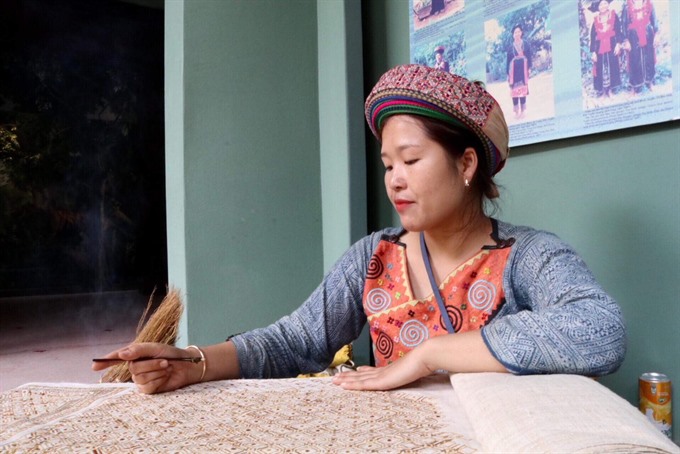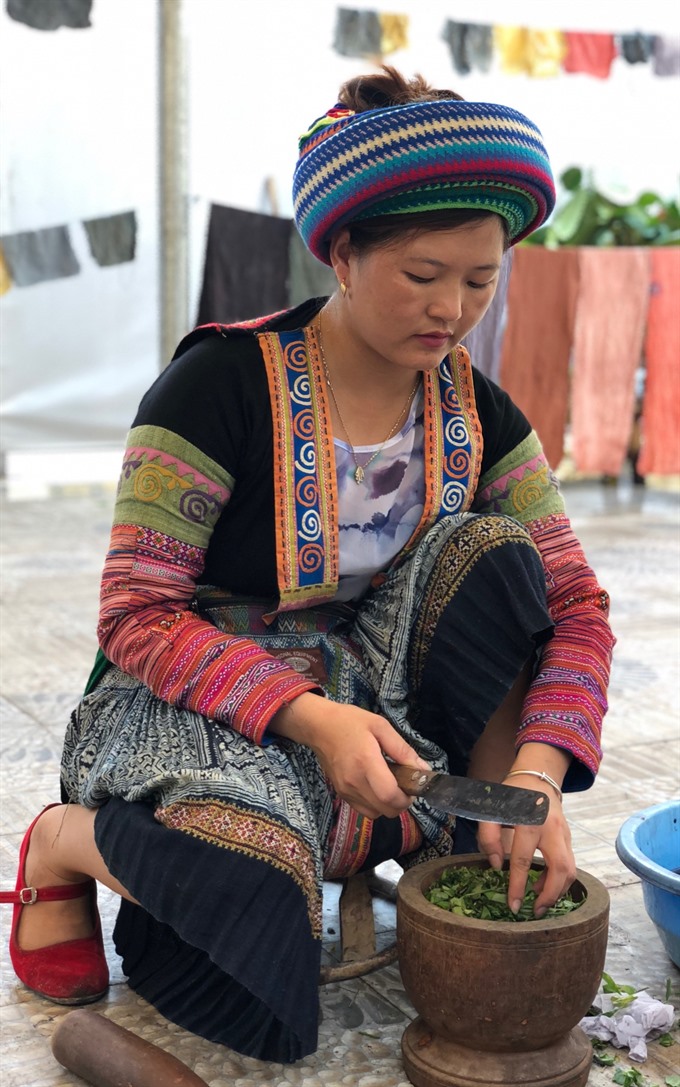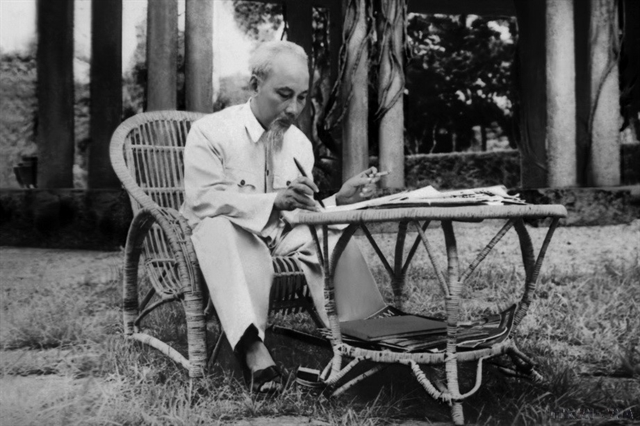 Life & Style
Life & Style

The Việt Nam Ethnic Groups’ Culture Museum in northern province has hosted various exhibitions, folk art shows, and traditional games over the weekend.
 |
| Intricate: A Mông woman works wax into a piece of fabric. — VNS Photo Hồng Vân |
THÁI NGUYÊN — The Việt Nam Ethnic Groups’ Culture Museum in the northern city of Thái Nguyên hosted various exhibitions, folk shows and traditional games over the weekend.
The event gathered over 100 members of the Việt Nam Culture Heritage Association, 200 artisans and hundreds of local students.
Participants enjoyed demonstrations of batique with the Mông ethnic group and paper making with the Dao ethnic group.
Addressing the workshop, Nguyễn Thị Ngân, director of the museum, said since May 2010, the museum had organised courses on traditional dance and singing, and over 65 exhibitions at the museum and nearly 50 mobile exhibitions throughout the north.
The museum has participated at international workshops and exhibitions in Malaysia, Indonesia, the Philippines, Australia, Sweden and China.
Visitor numbers to the museum have also increased to 180,000 per year.
 |
| Dyeing art: A Mông woman dyes cloth using leaves. — VNS Photo Hương Vân |
“We are building a strategy to make the museum a destination for travel agencies,” she said. “The museum is offering online bookings and is advertising events on the website.”
“Visitors can see, learn, play, relax and create at the same time, she said. “We are still trying to serve customers in a more professional way so that visitors can feel traditional cultural values transmitted in contemporary life. They can take home special souvenirs to remember Vietnamese culture.”
Museum researcher Nguyễn Thị Bích Vy said that it was necessary to judge what benefits traditional handicrafts bring to local people.
“The benefits can be in spiritual or financial,” she said. “Local people should decide whether they want to continue with handicrafts or not. If it works, they will try their best to maintain it.”
She also stressed the need to find an output for handicraft products.
“Cultural heritage should be associated with people and meet the demands of people,” she said. “Both tangible and intangible cultural heritages should be preserved and promoted in the communities they originated from. Only then will they become natural tourist destinations.” — VNS




